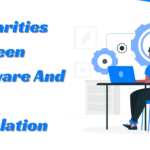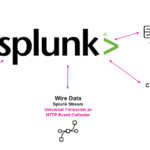The Future of Income Tax Filing: How Tech Innovations Are Changing the Landscape
The landscape of income tax filing is constantly evolving, driven by rapid technological advancements. As we look ahead, it is clear that innovations in technology will significantly influence how individuals and businesses approach their tax compliance. This article discusses some key technological advancements poised to change the future of income tax filing, enhancing efficiency, accuracy, and user experience.
How Tech Innovations Are Changing The Future of Income Tax Filing

Artificial Intelligence and Machine Learning
Artificial Intelligence (AI) and Machine Learning (ML) are already making significant strides in transforming income tax filing. AI-powered tax software can automate data extraction from documents like Form 16 and investment statements, reducing manual entry and minimizing errors.
These technologies can also provide personalized tax planning recommendations based on an individual’s financial situation, helping them maximize deductions and minimize liabilities.
As AI and ML advance, we can expect to see even more sophisticated applications in the tax filing domain. For example, AI algorithms could analyze historical tax data to identify potential deductions and credits that a taxpayer may have overlooked. ML models could learn from millions of tax returns to detect patterns of tax evasion or identify areas where taxpayers need more guidance.
Blockchain Technology
Blockchain, the distributed ledger technology, has the potential to revolutionize the way income tax data is secured and shared. By leveraging blockchain’s immutable and decentralized nature, tax authorities can ensure the integrity and privacy of taxpayer information while increasing transparency in the filing process.
Blockchain-based tax filing systems could provide a secure and tamper-proof record of all transactions, making it easier to verify the accuracy of tax returns. Taxpayers could also use blockchain to track the status of their returns and communicate with tax authorities in real time. As more countries explore the use of blockchain in tax administration, we can expect to see a rise in blockchain-based tax filing solutions in the coming years.
Cloud Computing and Mobile Apps
Cloud computing and mobile apps are already transforming how individuals and businesses file income tax returns. Cloud-based tax software allows users to access their tax information from anywhere, collaborate with tax professionals, and file their returns securely. Mobile apps offer a convenient way for taxpayers to track refunds, make payments, and even file their returns on the go.
We expect to see even more innovative tax filing solutions as cloud and mobile technologies advance. For example, taxpayers could use voice commands or facial recognition to interact with tax software, making the filing process more accessible and user-friendly. Mobile apps could also integrate with financial and wearable devices to automatically track income and expenses throughout the year, making tax planning a seamless part of everyday life.
Internet of Things (IoT) and Big Data
The rise of the Internet of Things (IoT) and the growing availability of big data are also poised to impact the future of income tax filing. IoT devices, such as smart home systems and wearables, could collect real-time data on income, expenses, and tax-related events, providing a more accurate and up-to-date picture of a taxpayer’s financial situation.
Big data analytics could help tax authorities identify patterns and trends in tax filings, allowing them to streamline the filing process and target areas of non-compliance more effectively. By analyzing millions of tax returns and other data sources, tax authorities could develop personalized guidance for taxpayers, helping them file their returns accurately and on time.
Conclusion
As technology advances, the future of income tax filing looks brighter than ever. From AI and machine learning to blockchain and cloud computing, the coming years will see many innovative solutions that can make the tax filing process faster, more accurate, and more user-friendly. As taxpayers, it is essential to stay informed about these emerging technologies and advocate for adopting secure and efficient tax filing systems that prioritize the needs of individuals and businesses alike.
By embracing these technological advancements, we can create a future where tax compliance is seamless, transparent, and accessible to all. The innovations discussed in this article can potentially revolutionise how we approach income tax filing, making it a more efficient, accurate, and stress-free experience for everyone involved. This article explores how various technological advancements, including artificial intelligence, blockchain, cloud computing, and the Internet of Things, are poised to transform the future of income tax filing. It highlights the potential benefits of these innovations, such as enhanced efficiency, accuracy, security, and user experience, while emphasizing the importance of staying informed and advocating for adopting advanced tax filing systems.
















